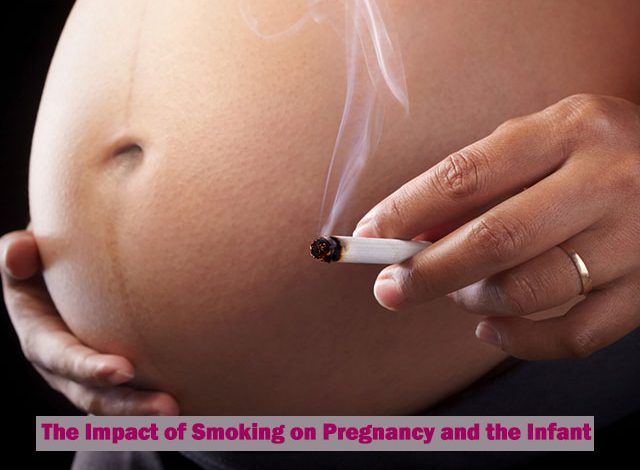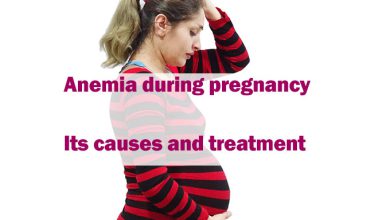The Impact of Smoking on Pregnancy and the Infant

Cigarette smoking is a significant public health issue worldwide. Smoking has numerous harmful effects on human health, including an increased risk of lung cancer, heart disease, and stroke. Additionally, smoking has negative effects on pregnancy outcomes, including increased risk of miscarriage, premature birth, low birth weight, and sudden infant death syndrome (SIDS).
Smoking and Pregnancy:
Smoking during pregnancy has been linked to numerous adverse outcomes. One of the most significant risks is low birth weight. Babies born to women who smoke during pregnancy are, on average, 200 grams lighter than babies born to nonsmokers. This increased risk is due to the effects of smoking on the placenta, which can reduce the flow of nutrients to the fetus.
Smoking during pregnancy also increases the risk of preterm birth. Babies born prematurely are at risk of numerous health problems, including respiratory distress syndrome, infections, and developmental delays. In addition, smoking during pregnancy has been linked to an increased risk of miscarriage and stillbirth.
Related posts: Drinking while pregnant
Smoking and the Infant:
Smoking during pregnancy can also have long-term effects on the infant. Children whose mothers smoked during pregnancy are at an increased risk of developing asthma, allergies, and other respiratory problems. Additionally, they may be more susceptible to infections and have a higher risk of sudden infant death syndrome (SIDS).
Furthermore, exposure to secondhand smoke after birth can also have negative effects on infants. Babies exposed to secondhand smoke are at an increased risk of respiratory infections, asthma, and SIDS. Additionally, infants who live with smokers may have impaired lung function, which can lead to long-term respiratory problems.
Some of the adverse effects of smoking during pregnancy include:
- Decreased fetal weight and premature birth
- Increased risk of respiratory infections in infants
- Increased risk of sudden infant death syndrome (SIDS)
- Increased risk of developmental delays and behavioral problems in children
- Increased risk of asthma and allergies in children
- Increased risk of placental complications, such as placenta previa and placental abruption
- Increased risk of miscarriage and stillbirth.
Pregnant women who smoke can quit smoking by taking the following steps:
Set a quit date and make a plan: Choose a specific date to quit smoking and make a plan that includes strategies to deal with cravings, such as finding alternative activities to distract yourself when you feel the urge to smoke.
- Seek support: Talk to your doctor, a counselor, or a support group about quitting smoking. They can provide you with resources, advice, and encouragement throughout the quitting process.
- Avoid triggers: Identify situations or activities that trigger the urge to smoke, such as drinking coffee or being around smokers, and try to avoid them.
- Use nicotine replacement therapy: Nicotine replacement therapy, such as nicotine gum or patches, can help reduce cravings and make it easier to quit smoking.
- Stay active: Exercise can help reduce stress and improve your mood, making it easier to quit smoking.
Remember, quitting smoking during pregnancy is the best thing you can do for yourself and your baby. It can help reduce the risk of complications during pregnancy and improve the health of your baby.
Related posts: Consumption of Milk during pregnancy
How does smoking affect a fetus’s lungs?
Smoking during pregnancy can have negative effects on fetal lung development. The chemicals in cigarette smoke, such as nicotine and carbon monoxide, can restrict the flow of oxygen and nutrients to the developing fetus. This can cause reduced lung function, decreased lung volume, and abnormal lung structure in the fetus.

Smoking during pregnancy can also increase the risk of respiratory problems in the newborn, such as asthma, wheezing, and respiratory infections. Infants born to mothers who smoke are also at higher risk for sudden infant death syndrome (SIDS), a condition in which a seemingly healthy baby dies in their sleep for no apparent reason.
Additionally, smoking during pregnancy can cause long-term respiratory problems in the child, such as chronic obstructive pulmonary disease (COPD) and reduced lung function in adulthood.
Therefore, it is highly recommended for pregnant women to quit smoking to minimize the negative impact on their developing fetus and improve their overall health.
How does smoking cause a baby to be born early?
Smoking during pregnancy can increase the risk of preterm birth, which means delivering a baby before 37 weeks of gestation. The chemicals in cigarette smoke, such as nicotine and carbon monoxide, can cause constriction of blood vessels in the placenta, reducing blood flow and oxygen to the developing fetus. This can lead to poor growth and development of the fetus, premature rupture of membranes, and premature labor.
Smoking during pregnancy can also cause inflammation in the mother’s body, which can trigger the release of hormones that can lead to contractions and premature labor. In addition, smoking can increase the risk of infections in the mother, such as bacterial vaginosis, which can also lead to premature birth.
Preterm birth can result in serious health problems for the baby, such as respiratory distress syndrome, bleeding in the brain, and long-term developmental delays. Therefore, quitting smoking during pregnancy is one of the most effective ways to reduce the risk of preterm birth and improve the health outcomes for both the mother and baby.
Related posts: Consuming Caffeine During Pregnancy
How does smoking during pregnancy affect fetal growth?
Does smoking during pregnancy increase the risk of premature birth?
Can smoking during pregnancy lead to long-term respiratory problems in children?
How does exposure to secondhand smoke after birth affect infant health?
Is it safe to smoke during breastfeeding?
Conclusion:
In conclusion, smoking during pregnancy has numerous negative effects on both the mother and the infant. Smoking can increase the risk of miscarriage, premature birth, low birth weight, and stillbirth. Infants born to mothers who smoke during pregnancy are at an increased risk of developing respiratory problems, infections, and SIDS.
Additionally, exposure to secondhand smoke after birth can have negative effects on infant health. Pregnant women should be strongly advised to quit smoking, and nonsmokers should avoid exposure to secondhand smoke.
Efforts should be made to promote smoking cessation among pregnant women and to reduce exposure to secondhand smoke for infants and children.
